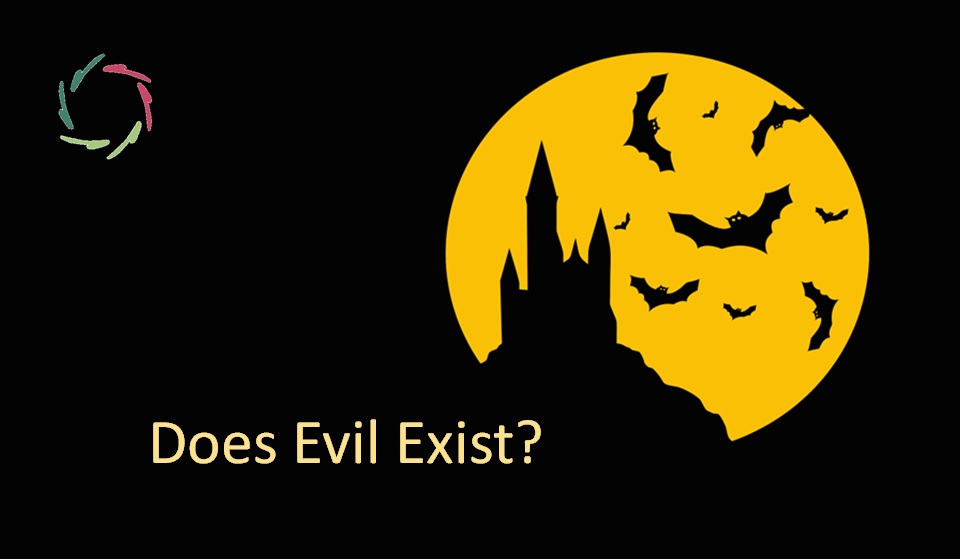Does Evil Exist?

Spoiler alert: It doesn’t — except within interpretation. There, in most cases, it’s mutual.
The one (individual, organization, people) seen as Evil doesn’t usually see himself as such. Instead, he sees the other as such.
‘Evil’ also as in geopolitics
The Axis of Evil, the war on terrorism, on drugs, or just any war… just take your pick.
Here, too, the ‘evil ones’ generally see themselves not as such. The evilness lies in the interpretations (and projections). This becomes more apparent when looking at the general picture from a UFO-view.
To be avoided is any simplistic interpretation.
This is, seen from an abstract viewpoint: we Good — they Evil.
The main problem is that simple interpretations attract many people through easy messages, whereby it doesn’t matter so much concretely what is good or evil.
Once you try to bring some complexity into this, you can encounter a surprising degree of inner resistance. Attempting to counter this usually only makes matters worse.
In this setting, friendliness is a risk.
A generally friendly attitude then becomes seen as a weakness, if not badness itself. Evil-seers are quite Manichean: things being white or black — if not easily good then bad.
If one acts friendly, then one is not altogether seen as being straightforwardly against badness — therefore, this may be seen as badness by itself.
Unfortunately, rampant inner dissociation makes this harsher.
In a bad case, ‘friendly’ thus even becomes a hallmark of what is to be avoided. What comes out of this is a whirlpool of more of the same dissociation, Eigenangst, and aggression or depression.
‘Us, the Good ones’ is in most cases an idea to be avoided.
The main reason for this is that it hinders the broad view.
Thus, from a narrow view, it can make people worse — much worse! We are talking here about indifference, discrimination, and war. We are talking about any addiction that lies about a promise of meaningful depth.
Precisely the narrow view hinders the broad view. Thus, countering it with itself only heightens it. Countering it with its opposite also only heightens it.
In short, ‘countering’ doesn’t work.
As written in other blogs, even if change doesn’t work, growth still does.
Even more, it has always been the only thing that works. One needs to ‘grow out of evil.’ Fortunately, that is very well possible. I hope the future will bring lots of that, from people’s childhood onward.
Huge challenge: Artificial Intelligence
This is probably the biggest challenge for humankind ever, in many ways: we versus it, it versus us, we versus ourselves in context of it, and – who knows, some time – it versus it.
There is an existential need for Compassionate A.I.


